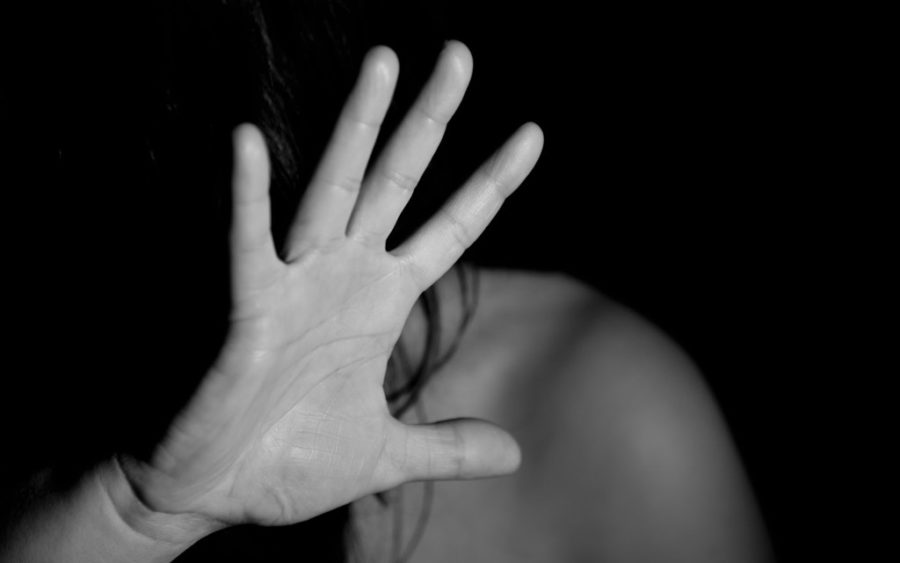Last week, the story of Mean Pich Rita, a 19 year-old student, beauty queen and TV presenter, sparked outcry among Cambodian social media users.
 Theang Soriya is a junior researcher on gender at Future Forum. She is a graduate in Global Affairs from the American University of Phnom Penh.
Theang Soriya is a junior researcher on gender at Future Forum. She is a graduate in Global Affairs from the American University of Phnom Penh.
Pich Rita, who also goes by the nickname “Yubi,” had been detained for theft but then filed a complaint alleging that she was instead the victim of attempted rape.
Pich Rita was arrested on May 8 at her house after the tycoon, Heng Sier, accused her of stealing his iPhone and stabbing him. Sier later called her a “prostitute — selling cake for money.”
Later, Pich Rita filed a complaint against the tycoon for attempted rape. Her case ignited calls from the public to release her and catalyzed a hashtag #JusticeForYubi. Pich Rita was released on bail on May 13, only a few days before police found that Sier’s daughter and son-in-law hired “lookalikes” to film a reenactment of the disputed incident. Government-aligned Fresh News initially reported that they wanted to take pornographic photos to attempt to ruin the reputation of Pich Rita.
In the wake of her arrest and Pich Rita’s own complaint, a video circulated on social media showing Pich Rita in her mother’s embrace at a police station crying and saying, “I am disgusted with myself. When I close my eyes, I see him touching me. He had a gun and wanted to touch me. I was very scared. He wanted to hurt me.” She continued while crying that “I am just a little girl. … I hate myself. Mom, I want to go home. He had a gun.”
“Is this how things are supposed to happen in Cambodia?” Pich Rita goes on.
It is painful and frustrating to have to give a simple but true answer to this question being asked by Pich Rita: “Yes, this is the way it has been.”
Other women have walked this road before Pich Rita — there was San Sreylai in 2017, Ek Socheata in 2015, Pov Panhapich in 2007, Toch Sreynich in 2003, Tat Marina and Piseth Pilika in 1999. We know the names of these women not just because they were entertainers in the public eye, but also because they became victims of violence and injustice, similar to what Pich Rita appears to be experiencing now.
For decades, violence against women working in the entertainment industry has persisted, defined by patriarchal, unbalanced power structures, privilege, and a culture of impunity.
A Cursed Body and Dream
Too many female artists in the Cambodian entertainment industry, be it singers, actresses, or TV presenters, have experienced violence just because they are women who dared to pursue their dreams and showcase their talents.
In 2017, San Sreylai, a 23 year-old former finalist on The Voice Cambodia and later a singer under the record label and production company Hang Meas, was shot dead by her husband — a 53 year-old customs official Chey Rin who shot himself afterward. “Jealousy” was the reason for this tragedy, said Sreylai’s mother, who also told the Phnom Penh Post in 2018 that “every time she went to divorce him, he threatened to kill her. We were scared to report it to the police because we were scared he would shoot all of us.”
In 2015, Ek Socheata, also known as “Sasa,” a female TV presenter, was punched, kicked and beaten by property tycoon Sok Bun as his bodyguard pointed a gun at her. Sasa told The Guardian that “he grabbed my hair and hit me and put my head down again and again.” The perpetrator, Bun, was sentenced to three years’ imprisonment, yet had all but 10 months of his sentence suspended after an out-of-court negotiation.
In 2007, Pov Panhapich, a 23 year-old popular singer at the time, was shot by two assailants on her way to school, leaving her legs paralyzed. Four men were arrested at the time. But the charge against them was for using illegal weapons instead of for shooting Panhapich. Then-Phnom Penh Municipal Police chief Touch Naruth told the Phnom Penh Post that Panhapich was the victim of a revenge shooting. Nine years later in 2016, Sok Khemarin, director of the penal police department at the Interior Ministry, told The Cambodia Daily that the shooting of Panhapich was still being investigated.
In 2003, Toch Sreynich, a 24 year-old well-known singer at the time, was shot in the face by an unknown gunman. Her mother who was with her at the time was also shot and died from her wound. Sreynich herself was paralyzed from the neck down. The motives for the shooting have remained unknown as Interior Ministry spokesperson Khieu Sopheak told the Phnom Penh Post that “the investigation is progressing slowly.”
In December 1999, Tat Marina, a 15-year-old video karaoke star at the time, was beaten unconscious and doused in 5 liters of nitric acid all over her face. The aftermath has been a “living hell,” Marina told the Southeast Asia Globe. “It’s a nightmare. Whenever I go for a walk, people pause to stare at me. Sometimes people, especially kids, get really scared — it’s horrible.” The prime suspect was identified as Khoun Sophal, the wife of Council of Ministers undersecretary of state Svay Sitha — who was allegedly in a relationship with Marina. Sophal went unpunished and Sitha was later promoted to secretary of state at the Council of Ministers. As of December, he was the delegate minister attached to the prime minister and head of the press and quick reaction unit at the Council of Ministers.
In July 1999, Piseth Pilika, one of the country’s most beautiful and popular actresses at the time, was gunned down near Phnom Penh’s O’Russei market and died instantly at the crime scene. Ever since, rumors circulated that the actress was ordered to be killed by the wife of a high-ranking official who was infuriated after discovering Pilika was having an affair with her husband. French magazine L’Express claimed the incident involved Prime Minister Hun Sen and his wife Bun Rany, who staunchly denied the claims and blamed then-opposition leader Sam Rainsy — whose sister-in-law worked at the magazine — for fabricating the story.
Behind these women’s tragedies were men with financial, political, and social power.
Imbalance of Power, Privilege and Impunity
In Cambodia — where patron-client relationships are deeply embedded in the culture of the entertainment industry, and most leadership positions in that industry are held by men — some female artists find that in order to survive and succeed they are required to abide by a certain set of rules.
In Pich Rita’s case, in her complaint and confession letter, for example, she alleges that oknha Heng Sier, who directs four businesses, spoke to her about offering her jobs on TV after the Covid-19 crisis came to an end.
Even in discussing this proposal, she would have found herself in a dynamic in which she was implicitly indebted to the oknha, and he had the power. Sexual violence is often associated with an imbalance of power between pepetrator and victim that intersects with other forms of oppression — in this case sexism and classism. That’s why we often see perpetrators target victims who have less power than them for the direct purpose of silencing and isolating the victim.
Pich Rita’s story, and this all-too-frequently toxic dynamic, has sparked conversation among her fellow entertainers. Two female artists have come forward to share their own experiences. Seng Ratha, a beauty queen, and Nikki Nikki, a popular singer, both wrote of being contacted to discuss work by people whom they have declined to name.
As Nikki wrote on her social media page, there was something suspicious and abnormal about these discussions, and in the end she chose her own safety over work and income. But this is perhaps a choice that not everyone feels they have the freedom to make.
The power that perpetrators committing violence on women in the entertainment industry wield — either as government officials or as rich and elite men — brings them not only the upper hand over female artists and media personalities, but it also brings them impunity.
Actress Ni Monyneath, after the news of Pich Rita emerged, came out to call for justice for her, saying that “most artists’ cases that are related to rich people, like oknha, are often unresolved, not knowing who wins and loses.”
Impunity for powerful men feels all too familiar in Cambodia. A similarly violent case in March also fits the pattern of connected men behaving badly and not receiving adequate punishment.
Doung Chhay, who was caught viciously beating Deth Malina, his former wife, in a video shared on social media, so far has seen his royal title of “oknha” removed but has evaded police questioning and jail time due to his sudden participation in monkhood.
In August last year, Ouk Kosal, a former two-star major general and provincial police chief, was accused of pressuring female subordinates to perform sexual acts on him in his office, touching their breasts and genitals, and threatening them to tell no one or face unspecified problems. His rank was reduced from two-star major general to colonel, but he did not face any criminal charges because some of the alleged incidents of abuse happened years ago and it would be “difficult to compile the case,” National Police chief Neth Savoeun told VOD.
To break this unequal system of power, we need systematic policies. Policies regarding fairness of recruitment, policies that regulate working environments, wages, and more. And these policy discussions must involve women in leadership roles. Fair working conditions for women in the entertainment industry would prevent more women from having to rely on or consider a patron-client relationship to climb the ladder.
The ongoing culture of impunity is another clear reason why violence against women by high-profile men keeps happening. Powerful men see that their actions do not meet with consequences. Whoever it is — Sok Bun, Doung Chhay, Ouk Kosal or other high-profile men — justice should be served fully. How many more tragic stories do we need to hear?
And this impunity is a large part of what keeps women from even telling their stories in the first place. Research shows that almost half of women experiencing intimate violence in Cambodia never speak about it to anyone. Staggeringly, around 76 percent of them never sought help from formal service providers or people in positions of authority. A hashtag and public outcry is the first step, but we need to also be offering these women ongoing support. We need to be ready to really listen to victims who defy the odds to come out, and ready to tell them “I’m sorry it happened to you, and I believe you, what can I do to help?”
It is important to consider, too, that if high-profile women are suffering these tragedies, what must be happening out of public view to women who feel they have even less power to speak up or stop their abuse? We must remake our culture for all women, not just for those who live their lives in the spotlight, but also for those who do not.













